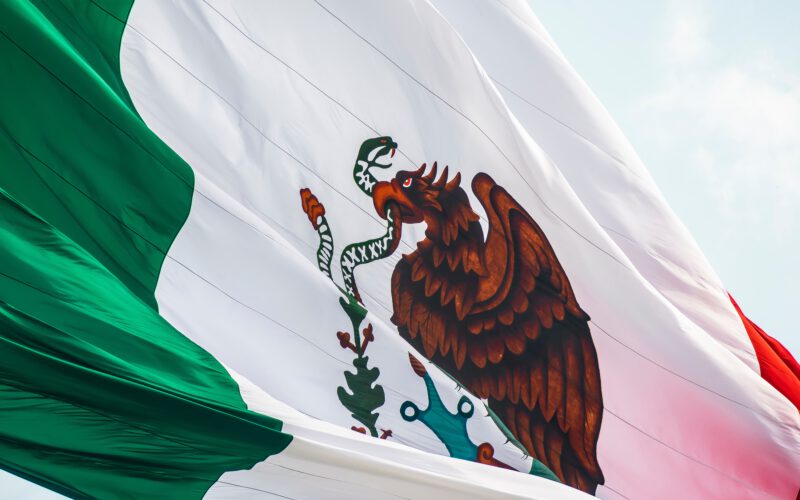LatAm List (Forbes Mexico) – Linda Rottenberg founded Endeavor, the high-impact entrepreneurship accelerator, twenty-two years ago– long before the word entrepreneur would be heard in Mexico or Latin America; how have things changed in those two decades? Rottenberg tells it all.
Five years after founding the high-impact entrepreneurship accelerator Endeavor in 1997, Linda Rottenberg visited Mexico for the first time, in this new stage in her life.
It was 2002, when she received an invitation from Pedro Aspe to participate in a series of reunions with Mexican entrepreneurs about the, then, very budding startup culture in Mexico.
What she never imagined was that the audience she was faced with at the talk Aspe had invited her to give was composed of some of the most affluent Mexicans in the country, among which were, for example, names like Emilio Azcárraga Jean and Lorenzo Zambrano.
More than thirty minutes of conversation had passed when the big question arrived: why is it that in Mexico entrepreneurship doesn’t advance and in other parts of Latin America it does? Rottenberg’s answer was simple, “because in Mexico the big fish eat the little fish,” she explained.
Her answer created an awkward silence, but she stuck to her words, which the Mexican audience valued in the end.
The reality is that while in those years, in Mexico few knew the word entrepreneurship, in other parts of the region, like Argentina or Colombia, there was already a vision for the creation of a startup ecosystem.
Growth
A lot has changed since that talk she gave, and although today Mexico still hasn’t birthed startups like the ones in the Southern Cone, like Mercado Libre or Rappi, the reality is that the country has moved forward positively in the universe.
In an interview with Forbes Mexico, the CEO and global founder of Endeavor, states that during that time, the country has developed, one step at a time, a startup ecosystem that is sustainable and capable of elevating its own potential.
“I see a developed entrepreneurial potential in Mexico and I think in the next three or four years it will make it to the global stage, just like other countries in the region have done,” she assures.
To endorse her statement, Rottenberg puts as an example various Mexican startups, like Ben & Frank, who have gained ground in the optometry world, or Clip, a Mexican payments fintech that is constantly growing.
“All of these distinguished entrepreneurs that Mexico has today, including Bitso or Conekta, will play an important role in entrepreneurship globalization,” explains Rottenberg.
Recipe for success
What has also happened in the country, adds Rottenberg, is that Mexican entrepreneurs understand that the recipe for their projects growth and success is to focus on covering needs that are specific to their society.
“Today what I think has been understood in the region is that a startup’s success is always related to positively changing the way a society lives its life, not to develop a cooler App, as was the previous mindset,” remarks Rottenberg.
To illustrate that idea, she uses as an example Mercado Libre, a company that in its beginning had the vision to become a leader in the e-Commerce in the world, making it easier for people to not only buy products, but also sell them.
“Going back to Clip in Mexico, it’s a company that is growing because it understood the value in financial inclusion in the country, adapting its business model to grow with the situation in mind,” she explains.
To develop startup projects with this focus also allows startups, comments Rottenberg, to gain an important value, which is the people’s trust, because the company is close to them and their needs.
Money arrives in LatAm
In the last months Mexico and the region have been in the spotlight due to a good number of funds deciding to bring their capital to the region, something that shows the value that is being seen in this part of the world.
The main investor was the Japanese giant SoftBank, which created a $5B fund, dedicated exclusively to tech startups in Latin America. Among the first to receive capital are Colombian Rappi and Mexican Clip.
“What’s happening in the region is magnificent, because it’s a sign that there’s a great interest in innovation in this part of the world and to keep enhancing what’s already been done,” she states.
However, despite the excitement created by this situation, Linda Rottenberg asks that the region’s startup ecosystem maintain calm and avoid overheating the environment, as has happened in other parts of the world, like China.
“It’s fantastic that so much money is coming into the region, but we should be careful with who we give that money to, because the reality is that not every entrepreneur should have access to it– only those that are able to prove the capability of the projects they are developing,” she explains.
The unicorn dilemma
Finally, Endeavor’s CEO talks about one of the questions that has concerned the Mexican startup ecosystem the most: the absence of unicorns, companies whose valuation exceeds $1B.
“Mexico is making important growth steps in its ecosystem, but it’s a step by step process. For example, just five years ago Brazil got its first unicorn, therefore it’s a project that shouldn’t be forced,” mentions Rottenberg.
Rottenberg makes emphasis on the fact that this doesn’t need to be an important issue for startups in Mexico, since an ecosystem’s success is not solely based on the number of unicorns it has, but on its ability to push the country forward in general.
“Unicorns aren’t what’s important, it’s the ecosystem’s ability to create impact and change in its surroundings, developing talent, and helping companies last longer,” concludes Rottenberg.
Read original article in Spanish on Forbes Mexico.



